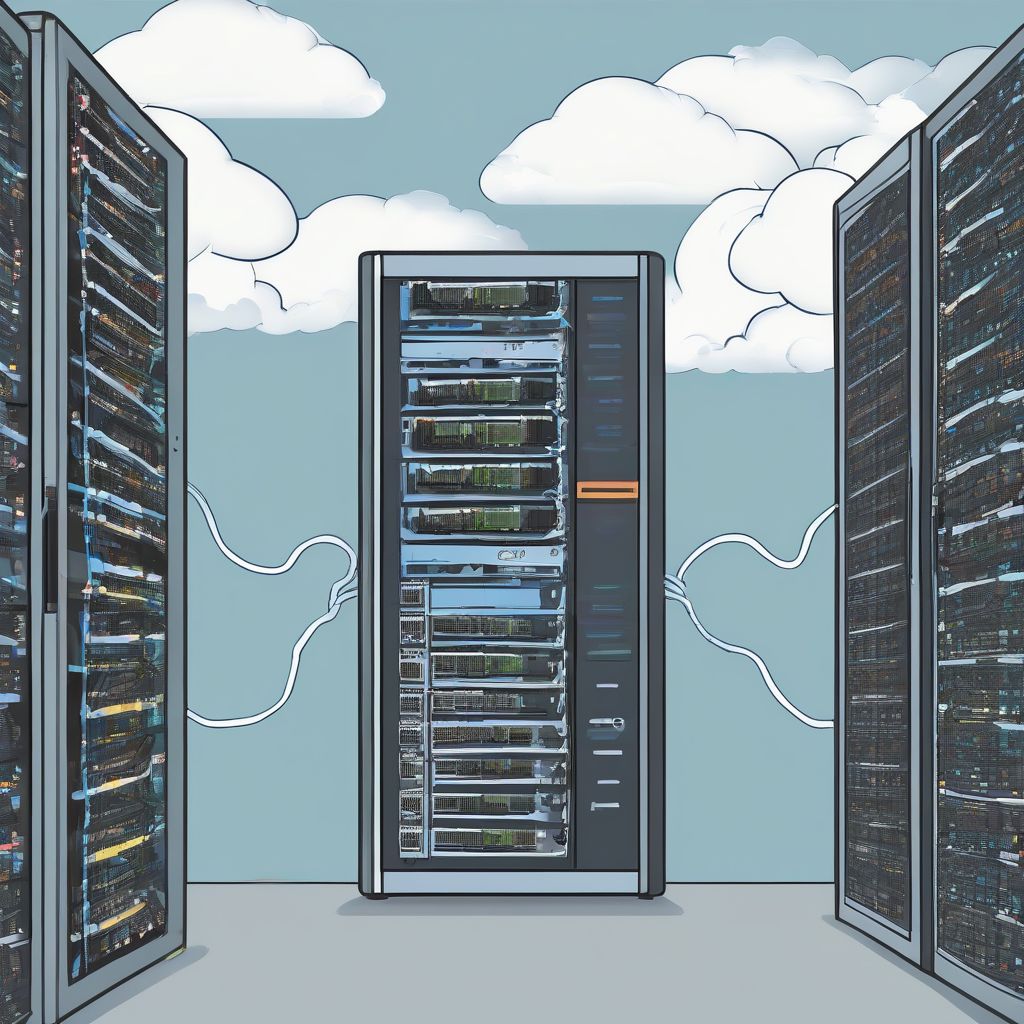In today’s digital age, businesses face a critical decision regarding their data and applications: on-premise or cloud? This choice significantly impacts your IT infrastructure, costs, scalability, and overall efficiency. Understanding the key differences and exploring relevant considerations is essential for making an informed decision.
cloud.caingong.com/wp-content/uploads/2024/07/on-premise-vs-cloud-66a08f.jpg" alt="On-Premise vs. Cloud" width="1024" height="1024">On-Premise vs. Cloud
What is On-Premise?
On-premise refers to the traditional approach of hosting software and data within your own physical infrastructure. This typically involves servers, networking equipment, and software licenses purchased and managed by your IT team.
Advantages of On-Premise:
- Control and Security: You maintain complete control over your data and applications.
- Customization: Tailor your infrastructure to meet specific business needs.
- Data Residency: Store data locally to comply with regulations or preferences.
Disadvantages of On-Premise:
- High Upfront Costs: Significant investment in hardware, software, and maintenance.
- Limited Scalability: Scaling resources can be time-consuming and costly.
- IT Expertise Required: Requires a dedicated IT team for management and troubleshooting.
What is Cloud Computing?
Cloud computing delivers on-demand services over the internet, including servers, storage, databases, networking, software, analytics, and more. Instead of owning and managing your own infrastructure, you access these resources from a cloud provider like AWS, Microsoft Azure, or Google Cloud Platform.
Advantages of Cloud Computing:
- Cost-Effectiveness: Pay-as-you-go pricing model reduces upfront costs.
- Scalability and Flexibility: Easily scale resources up or down based on demand.
- Accessibility and Collaboration: Access data and applications from anywhere with an internet connection.
- Automatic Updates: Cloud providers handle software updates and security patches.
Disadvantages of Cloud Computing:
- Security Risks: Data breaches and cyberattacks are a concern, requiring robust security measures.
- Vendor Lock-in: Switching cloud providers can be complex and expensive.
- Internet Dependency: Requires a reliable internet connection for access.
When to Choose On-Premise vs. Cloud?
The best choice depends on your specific business needs, budget, and long-term goals. Here are some key factors to consider:
1. Budget and Cost Structure:
- On-Premise: High upfront costs, ongoing maintenance, and potential upgrade expenses.
- Cloud: Pay-as-you-go model, predictable monthly expenses, and potential cost savings over time.
2. Scalability Requirements:
- On-Premise: Limited scalability, requires significant investment to expand.
- Cloud: Easily scale resources up or down to accommodate changing demands.
3. Security and Compliance:
- On-Premise: Full control over security, but requires in-house expertise and ongoing maintenance.
- Cloud: Shared responsibility for security, with providers offering robust security features and compliance certifications.
4. IT Expertise:
- On-Premise: Requires a dedicated IT team for management, maintenance, and troubleshooting.
- Cloud: Reduces the need for in-house IT staff, as providers handle infrastructure management.
5. Data Residency and Control:
- On-Premise: Full control over data location and access.
- Cloud: Data may be stored in multiple locations, consider data residency regulations and provider policies.
Conclusion: Making the Right Choice for Your Business
The decision between on-premise and cloud is not one-size-fits-all. Carefully evaluate your specific business requirements, resources, and long-term objectives. On-premise solutions offer control and customization, while cloud computing provides scalability, cost-effectiveness, and accessibility. By considering the factors outlined in this article, you can make an informed decision that aligns with your unique needs and drives your business forward.
We encourage you to share your thoughts and experiences in the comments below. What factors are most important to you when considering on-premise vs. cloud solutions?
